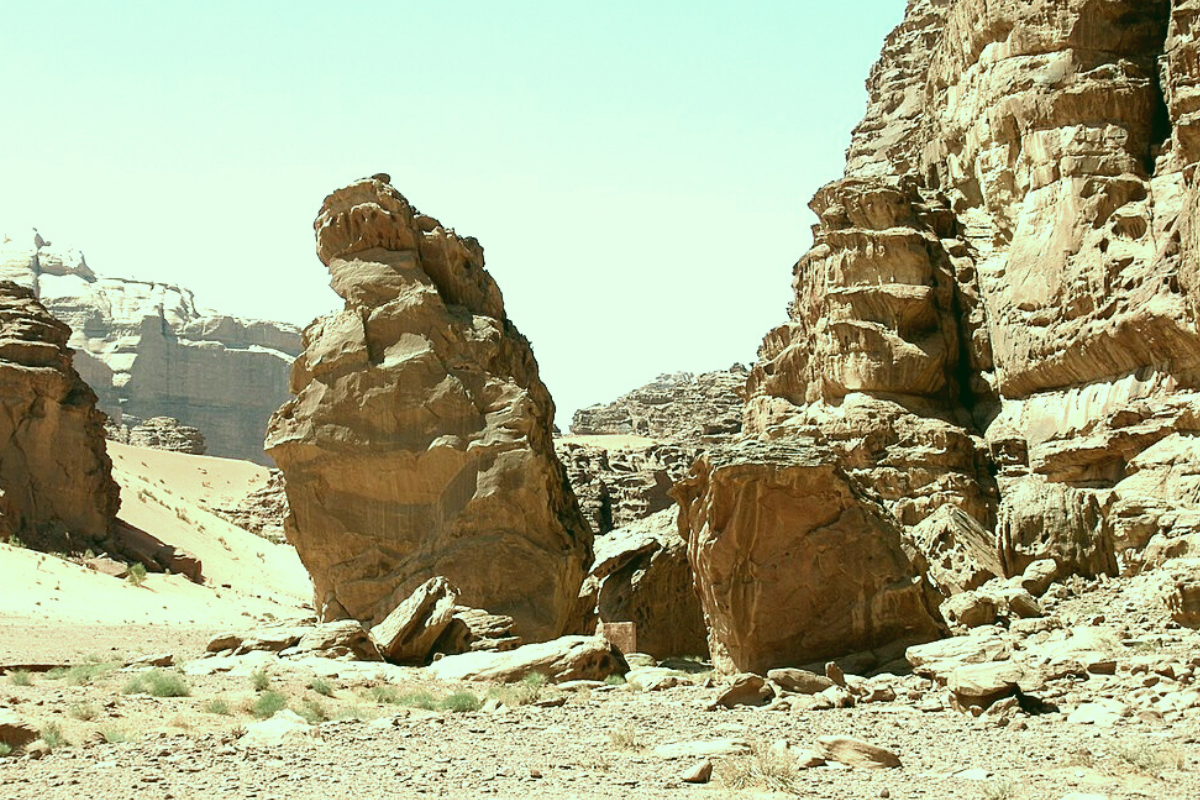
God’s Promised Presence
As children of God, the Lord will always back His Word and provide His presence in life’s challenges. In Deuteronomy 31:8, Moses wrote, “The Lord himself goes before you and will be with you; he will never leave you nor forsake you. Do not be afraid; do not be discouraged.”
Jesus assured His disciples in Matthew 28:19-20, “Therefore, go and make disciples of all nations, baptizing them in the name of the Father and of the Son and of the Holy Spirit, 20 and teaching them to obey everything I have commanded you. And surely I am with you always, to the very end of the age.”
God’s presence as the “Moving Rock”
It is fitting to note that God’s promised presence to Israel not only constituted the overwhelming presence of God along the way but also His physical presence in the form of the “Moving Rock”. Apostle Paul wrote in 1 Corinthians 10:4, “and all drank the same spiritual drink, for they were drinking from a spiritual rock that followed them; and the rock was Christ”
Some believe there was no moving Rock in the Old Testament. Rather, a tradition that finds its way into Paul’s writing. But this was not the case, as the Rock that provided water was present at different locations and at different times.
Numbers 21:17 tells us that when Israel came to Beer (“well”), where Moses assembled the people to receive water, “Then Israel sang this song, `Spring up, O well! Sing to it!’”
From other passages, it is reasonable to conclude that the “Rock” was not only one of Moses’ common designations for the Lord but also an actual physical rock as the apostle Paul indicated. However, the Rock has become a primary designation of the Lord.
Characteristics of the Rock
The ways of the Rock are perfect and just (Deut. 32:4) – “He is the Rock, all His works are perfect, and all His ways are just. A God of faithfulness who does no wrong, upright and just is He.”
It was the Rock that brought salvation to Israel (Deut. 32:15) “Jeshurun grew fat and kicked; filled with food, they became heavy and sleek. They abandoned the God who made them and rejected the Rock their Savior.”
Because of Israel’s sin, the Rock gave her up to defeat; if the Rock had not turned from Israel, she would have been invincible (Deut. 32:30). The rocks of the nations are not like “our Rock” (Deut. 32:31). In many of these instances, Moses’ use of “Rock” goes beyond metaphor and approaches personification.
We can find similar expressions outside the Pentateuch. The Rock spoke to David and made a covenant with him (2 Sam. 23:3-7; cf. 2 Sam. 7). Numerous Psalms borrow this imagery as well (e.g., Ps. 18:2, 31, 46; 62:2, 6; 89:26; 92:15; etc.). According to Isaiah, the everlasting Rock is trustworthy (Isa. 26:4). Idols may be graven of rock, but there is no other Rock (Isa. 44:6-10).
The Lord our Rock
More specifically, the “Lord our Rock” was present when Moses struck the rock in the wilderness. When the people complained, the Lord instructed Moses, “Behold, I will stand before you there on the rock at Horeb; and you shall strike the rock, and water will come out of it, that the people may drink” (Exo. 17:6).
According to Exodus 17:6, the Lord appeared in visible form on the rock of Horeb. In what visible form did the Lord appear? In the context of Exodus, the only reasonable answer to this question is that the glory-cloud stood before Moses on the rock (Exo. 13:21-22; 14:19, 24).
The Rock of Israel
The Rock of Israel definitely led the Israelites through the wilderness and followed them as well. He was not only their guide but also their rear guard (Exo. 14:19). In the context of describing the return from exile as a new Exodus (Isa. 52:4; 48:20-21), Isaiah says that the Lord would go before and follow Israel (Isa. 52:12; 58:8). Paul’s emphasis on the fact that the Lord followed Israel is striking.
Finally, Paul calls the Rock that followed Israel “Christ”. This, too, can be inferred from a careful study of connections between the glory of God, the Rock, and the Messiah in the Old Testament. The Rock is the Rock who brings salvation, and the Messiah is the agent of redemption.
Moreover, the glory is a manifestation not only of the Spirit but also of the Son. Thus, the event recorded in Exodus 17 points to Jesus, the image of the glory of God and the Rock of offence, who was struck, and from whom flows living water.
Photo by Vyacheslav Argenberg on Wikimedia Commons









